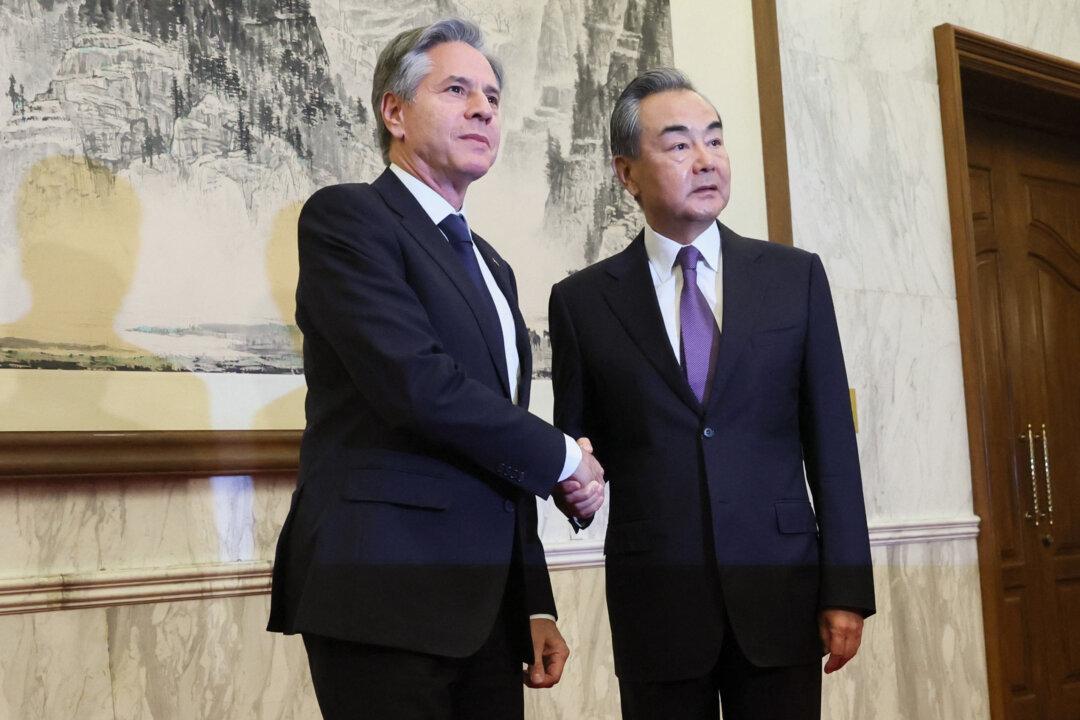U.S. State Secretary Antony Blinken met with China’s top diplomat and will potentially meet with Chinese leader Xi Jinping as he nears the end of his two-day visit to Beijing on Monday.
China’s top diplomat Wang Yi greeted Blinken at the Diaoyutai State Guesthouse on Monday. They exchanged handshakes upon meeting and posed for photos before proceeding to begin their discussions in the hall for three hours. Neither made comments in front of reporters.





